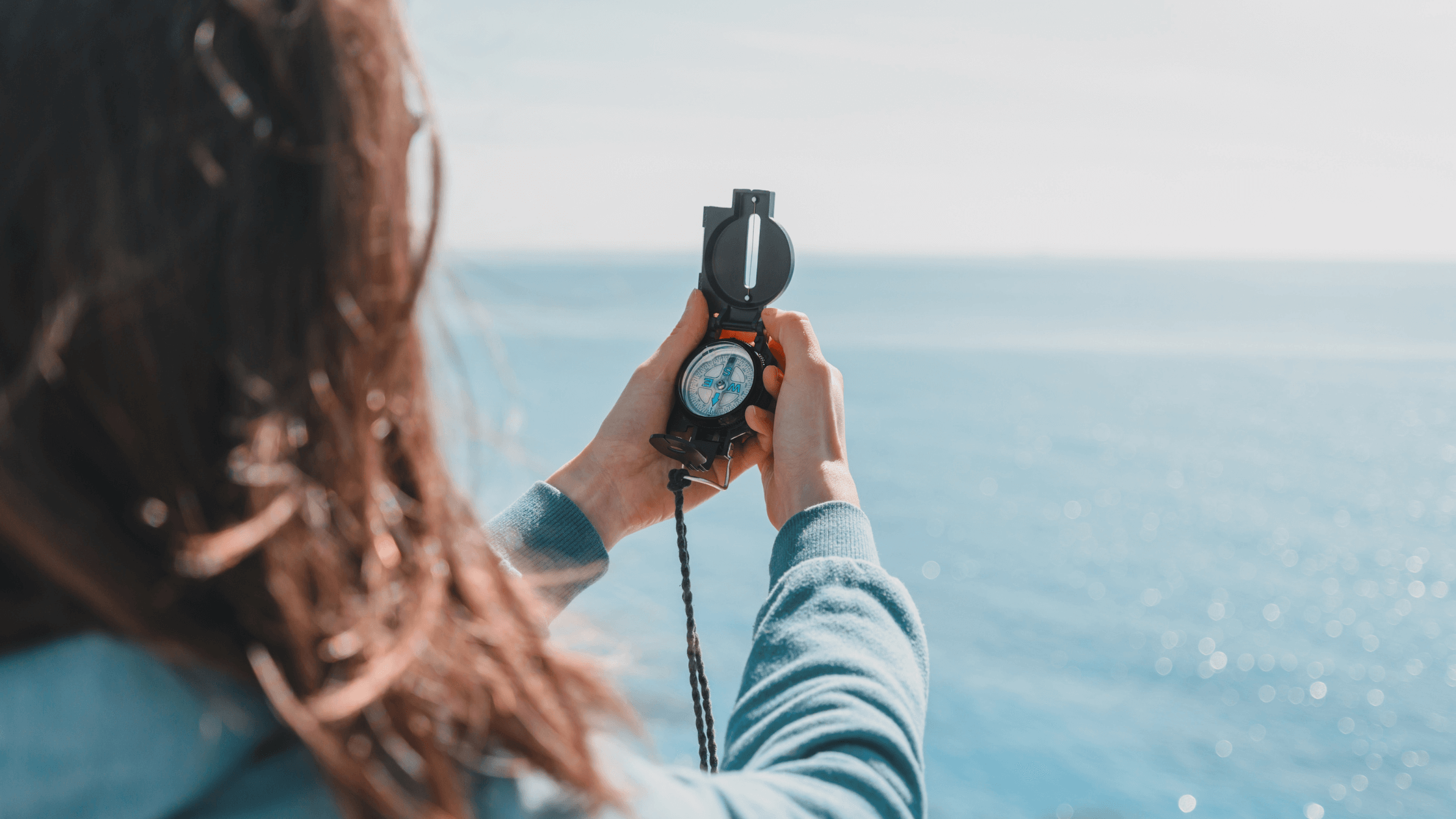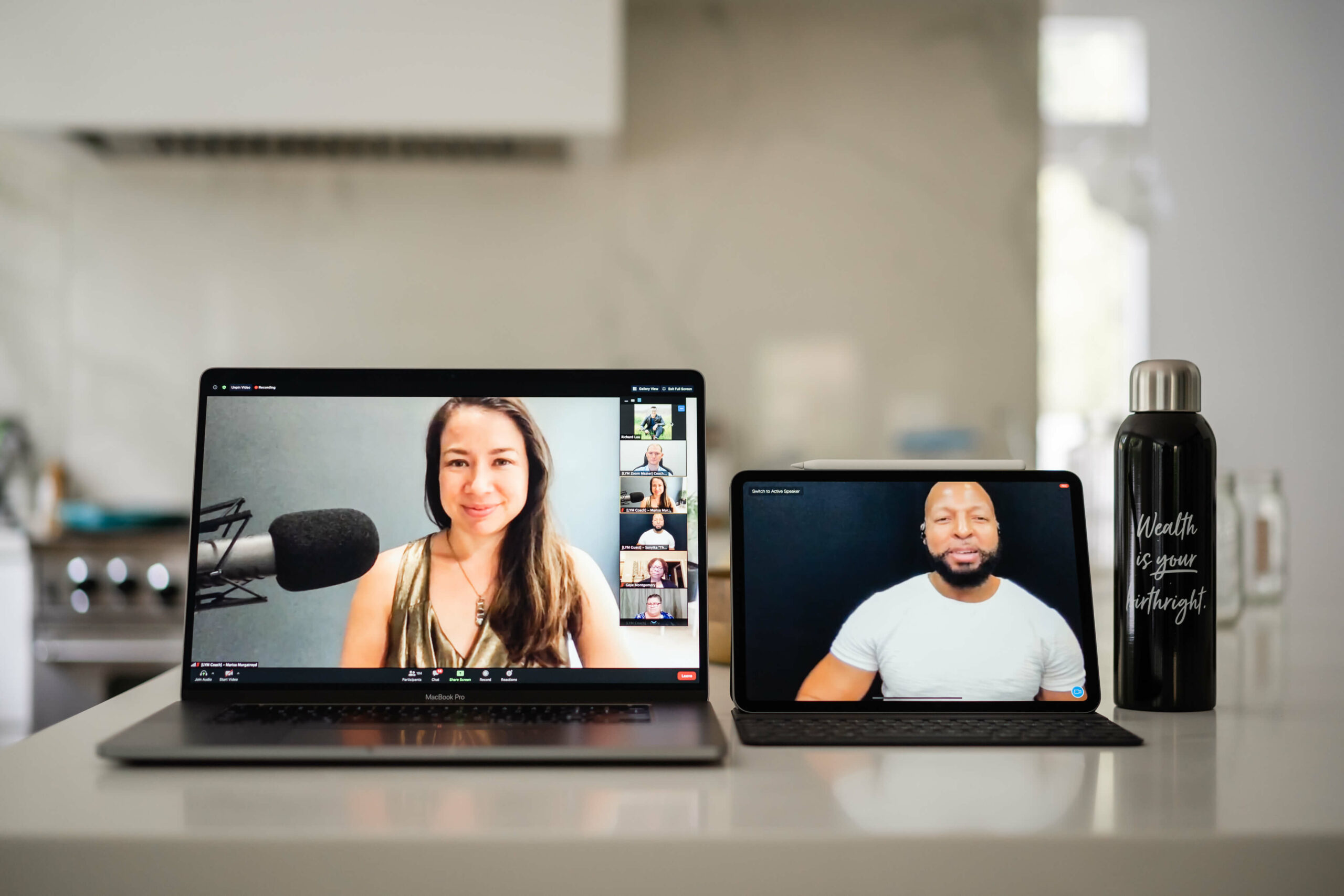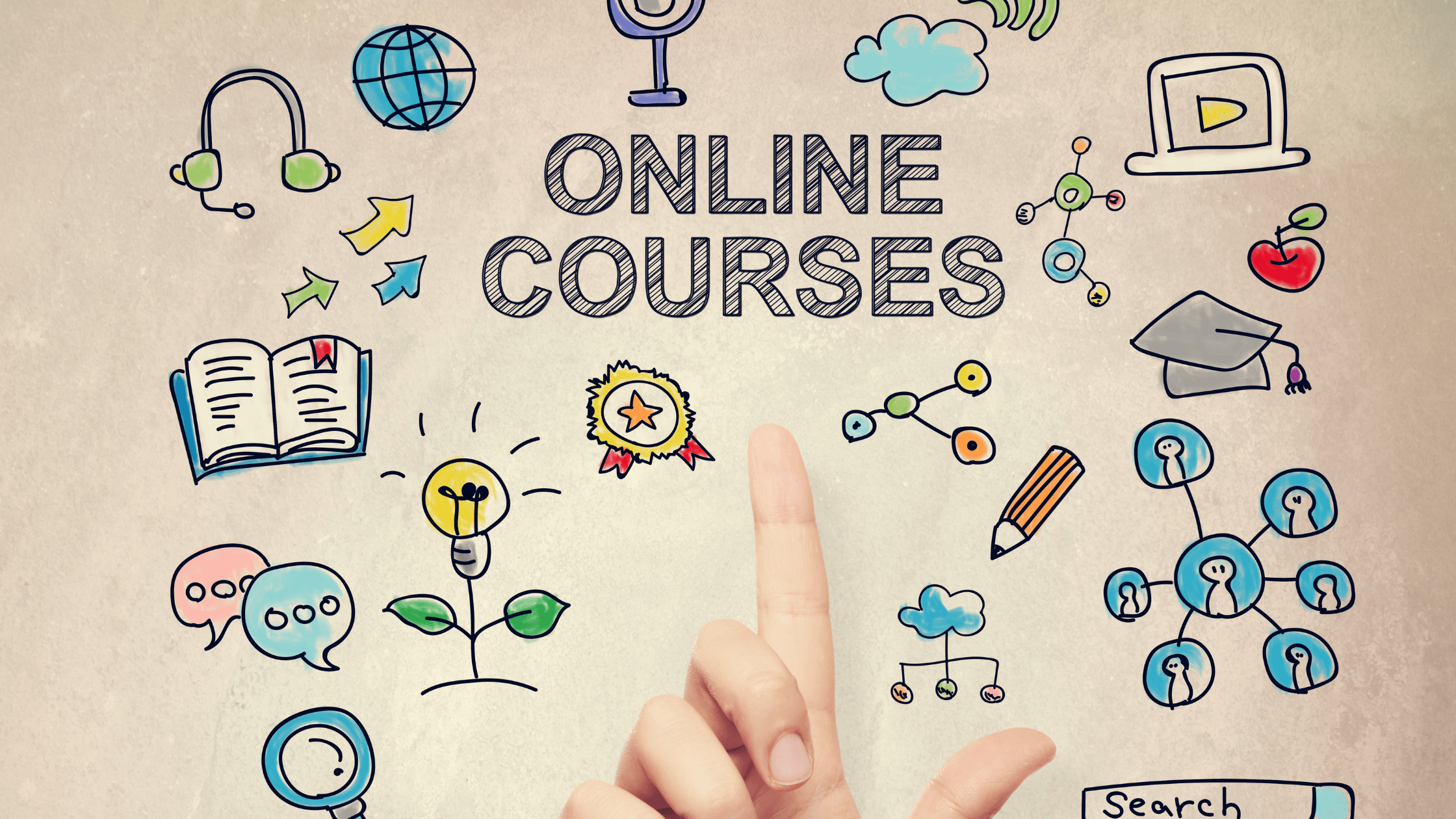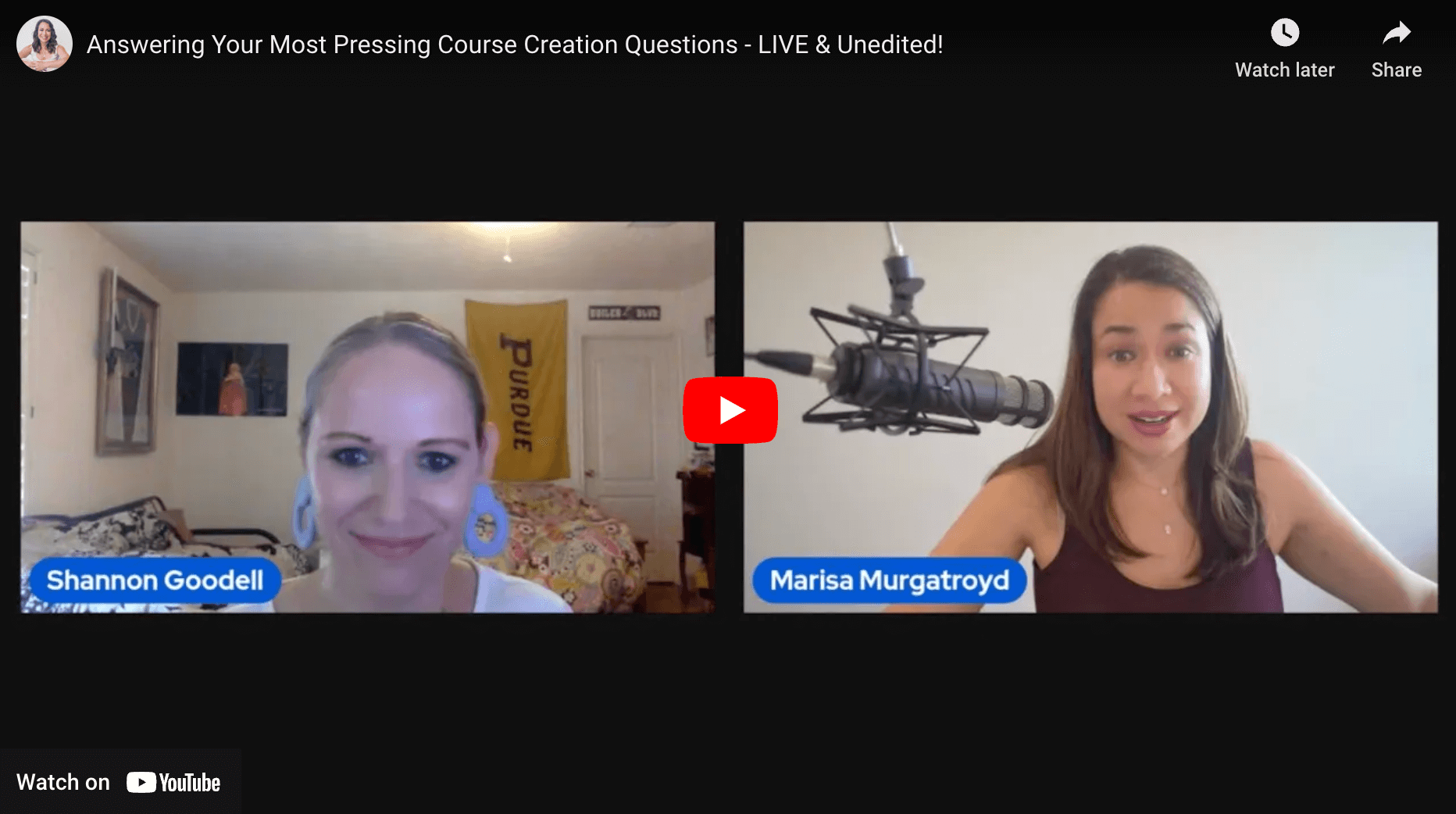When you start your course creation journey, you’re filled with excitement, ideas, and, let’s be honest, a bit of that “what the heck am I doing?” feeling.
But in the rush of bringing your knowledge to the digital world, it’s crucial not to overlook a silent but oh-so-significant aspect: the legal side of online course creation.
Now, I know what you’re thinking, “Legal stuff… yawn, right?” But stay with me!
Navigating the waters of copyright, trademarks, privacy policies and terms of use doesn’t have to be rough…
Instead, it can make your journey to course creation success so much smoother.
Ready to get into it? Let’s go!
Copyrights: Your Creative Compass

Let’s examine copyrights first.
According to a survey by the Copyright Alliance, copyrights not only protect original work from being used without permission but also ensure that creativity receives the recognition and reward it deserves.
But what about using other people’s work within your course?
Here’s where it gets interesting…
Fair use might seem like a lifesaver, but it can be tricky if you’re not careful. According to Stanford University Libraries, fair use is determined on a case-by-case basis, considering factors like the purpose of use and the amount of the original work used.
Judges use four factors to resolve fair use disputes:
- the purpose and character of your use
- the nature of the copyrighted work
- the amount and substantiality of the portion taken, and
- the effect of the use upon the potential market.
My advice?
When in doubt, seek permission or opt for content you’re free to use. Websites like Unsplash for images or the Free Music Archive for tunes can be gold mines for course creators. You can also use paid platforms — Canva has an extensive image library and Epidemic Sound is a great choice for music.
Trademarks: Marking Your Territory
A trademark is a word, phrase, symbol or design that identifies and distinguishes the source of the goods of one company from those of another.
Some well-known trademarks include:
- Nike’s “swoosh” logo
- Coca-Cola’s red and white color scheme
- McDonald’s golden arches
- Capital One’s “What’s in your wallet?” slogan
- Product names like iPod
In the United States, a trademark can be registered with the United States Patent and Trademark Office (USPTO) to protect it from being used by others without permission. However, this will not protect the trademark in foreign countries. As such, a trademark must be filed in each country where protection is sought.
Ensure your course name or brand doesn’t unintentionally infringe on someone else’s trademark. A quick search through the USPTO’s database can save you a lot of headaches in the future!
Privacy Policies: The Captain’s Code
With great power comes great responsibility, especially when handling personal data. The General Data Protection Regulation (GDPR) in the EU and the California Consumer Privacy Act (CCPA) in the U.S. are just the tip of the iceberg.
Non-compliance isn’t an option.
Your course needs a privacy policy as robust as the hull of a ship.
A privacy policy is a document that explains how you collect, use, store and share the personal information of your learners.
It’s not just a legal requirement — it’s your promise to your crew (read: your students) about how you’ll protect and use their data. Tools like Termly.io offer customizable policies to keep you ship-shape.
The Uncharted Waters

Now, let’s talk about some rarely discussed aspects of the legal side of course creation…
Starting with accessibility.
Ensuring your course is accessible to all isn’t just good practice — it’s a legal requirement in many jurisdictions. The Web Content Accessibility Guidelines (WCAG) provide a framework for making digital content accessible to people with disabilities.
WCAG is organized by four main principles: content must be perceivable, operable, understandable and robust. These principles are often referred to by the acronym POUR. They can be applied to any kind of digital product or service, no matter the underlying technology.
Next, let’s talk about license agreements for course platforms.
Choosing a platform is like choosing your vessel. Before you set sail, you need to understand what you’re getting into. Some platforms might claim a portion of your rights. Make sure to read the fine print carefully.
Selling your course internationally? Laws vary dramatically across borders. For instance, VAT on digital goods (VAT stands for Value Added Tax) is a maze of regulations in the EU. For instance, if your online course has a human element (like a live teaching component), it’s generally not subject to digital tax whereas if your course is fully automated, it will be subject to digital tax. This article is a great resource for understanding how VAT works when it comes to online courses.
The Compass Always Points to Due Diligence
Creating an online course is an incredible journey, and while the legal side might seem daunting, it’s your compass in uncharted waters. It ensures that your hard work pays off without legal headaches down the line.
Remember, the goal isn’t just to avoid using copyrighted material unlawfully — it’s to create a course that’s as legally sound as it is impactful!
As you plot your course through the creation process, consider consulting with a legal professional who specializes in intellectual property and online commerce.
Hopefully, this post helped demystify a challenging aspect of course creation: the legal side!
Before you go, where are you in your course creation journey? I’d love to know!
And if you want support to turn your business dreams into reality…
Check out my yearlong business accelerator — Momentum.

Usually, when it comes to the support you need to take your business to the next level, you’re forced to choose between: Private Coaching, A Small Group Mastermind Or Live Events & Workshops…
And — while each one of these things is awesome… they’re NOT enough to guarantee the business results you’re after…
Because…
With Private Coaching… you’re missing the perspective that comes from community…
With Small Group Masterminds… you’re lacking the depth and accountability of having that private coach…
And with Live Events & Workshops, you get pumped, but then the excitement fades and you fall back into procrastination and overwhelm…
That’s why I’ve created ONE cohesive program that gives you ALL 3. I like to call it a best of ALL worlds program!
You get Private Concierge Coaching, Small Group Masterminds and Live Trainings and Quarterly Events.
Yes, ALL 3 in one value-packed program!
If your ears are perked up and you’re excited to learn more about how me and my team can support you in realizing your biggest business goals this year… click here to schedule a no-pressure Call with a Program Specialist.
So, schedule that call and I hope to see you inside Momentum!
Now, go out there and Live Your Message!


























Leave a Comment